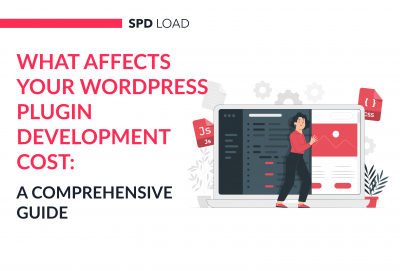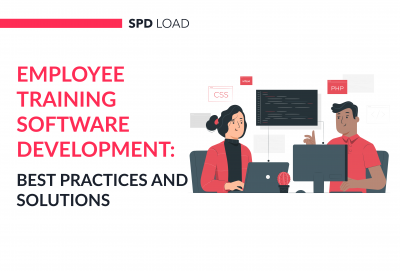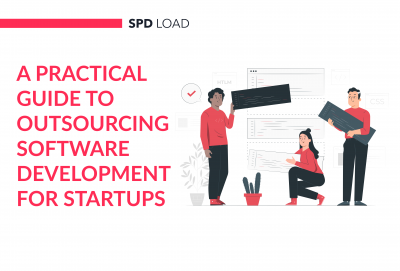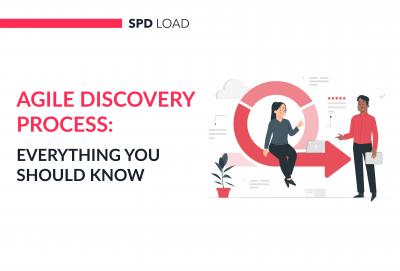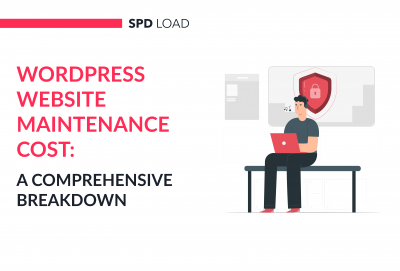SEO for Startups: An Ultimate Guide for Founders (2024)
- Updated: Aug 27, 2024
- 5 min
For a startup, the first three months of any new marketing channel can be intense. It’s likely to be quite a high pressure situation, with no prior learnings to draw from, and a limited budget to work with.
For SEO though, it’s even trickier. This is a long-term channel, but you know you need to prove some progress early to make this channel viable. So what do you do?
Here’s a 5-step plan for how you can maximize the first 3 months of your startup SEO work.
Elevate your brand with our custom website development and design services — let's build your dream site together!
1. Set Clear Goals & KPIs
Here’s where to start. Align with your team on goals and KPIs. This is going to inform the actions, tasks & strategies you’ll work on in the coming quarter.
One method for goal setting in SEO which I like to use is OKRs: objectives and key results. I’ll give you an example of how a broad, basic SEO OKR might look:
Objective: Increase revenue from organic search:
- Key result 1: Achieve 10 first page rankings for target keywords
- Key result 2: Build 10 new backlinks from unique referring domains
- Key result 3: Reach 10 MQLs per month from organic search
You can make these more specific, but it’s likely you’ll have multiple marketing OKRs, of which only one or two are specific to SEO anyway.
To track progress & keep these top-of-mind, you can use a dedicated OKR software, or simply note these down in a Doc, in Slack, Notion, or wherever your team can get visibility of them.
2. Analyze Your Existing Content
Depending on the stage of your startup, this might not be super relevant. But if you have any existing content to work with, it’s worthwhile considering.
Work on Optimizing Existing Content
Tinkering with on-page optimizations and updating existing pages/articles (if you have them) can lead to some SEO quick wins.
It’s important in SEO to try and grab a few quick wins upfront. This proves the channel is working and alleviates some pressure so that you can work on the long-term bets at the same time.
Here’s a quick process you could go through to maximize this opportunity:
- Map out a list of your priority pages
- Identify what should be your primary target keyword for each page based on your keyword research & Search Console data
- Review your meta title, description, and headings to make sure they’re aligned with your target keyword
- Run the page through a content optimization tool like SurferSEO or one of its alternatives and implement any recommended edits.
To be sure you have chosen the right tool, you can google about it or read a review.
If You Have Existing Traffic, Consider Doing CRO Work
It depends on the precise team configuration, but the chances are, as an SEO manager, you’re responsible for organic results as you know it from SEO certification course. That means all conversions coming from your organic channel.
And outside of increasing traffic, the other side of the coin is to increase the conversion rate from that traffic. I strongly recommend learning some CRO best practices to boost your results. As a starting point, here’s a guide on learning how to spot CRO opportunities in Google Analytics.
3. Conduct Keyword Research & Plan Content
Chances are, your SEO performance is going to be heavily driven by new content production in a startup.
Everything starts with keyword research. You should research topic ideas, and rank them based on:
- Keyword search volume (and therefore traffic potential)
- Keyword difficulty
- Commercial intent
- Relevant to your product or service
Start with High Intent, Bofu Topics
Bottom-of-funnel topics indicate that the searcher is close to making a buying decision. For example, a keyword like ‘best project management tools’ could be considered ‘BOFU’ because:
- The person knows what project management software is
- They know what the benefits are
- They’ve already indicated that they could be in the market for a new tool
That’s in comparison to a search like ‘what is project management’ or ‘project management techniques’, which might be the right ICP, but the intent to buy isn’t there.
If you’re familiar with BigQuery SQL, it’s possible to automatically tag a batch of keywords with TOFU/MOFU/BOFU categorization automatically. (#6) for a short explanation on how to do that.
Starting with high intent BOFU topics will be the key to earning an ROI early on in your SEO investment. That’s where the quick conversions will be.
Hire Freelance Writers If You Need To
For a lean startup without a significant in-house team, freelance writers are likely the key to scaling up your SEO & content efforts.
Try asking your network for recommendations, or going to popular freelancer websites like UpWork if you need to.
You can expect to pay writers per word, per article, per hour, or per project depending on their preference/model.
Forecast Whether You’ll Need Design/Dev Resources
Is writing the only resource you’ll need for your SEO plans?
If you’re creating tools like calculators, template galleries or other SEO-driven projects, you’re going to need to pitch for SEO resources. Perhaps you’ll need design resources for in-article assets, or just featured images for blogs.
Think about this in advance, and make your business case to get the resources.
4. Kickstart a Link-Building Initiative
While good content alone will get you some great traction, you won’t be able to compete for medium & high competition keywords without link building.
During your first three months, you can lay the foundations and prepare for how link building will fit into your SEO strategy long-term.
My favorite link-building technique is guest posting. Contributing good quality content to other sites, in exchange for being allowed to link to your own content. It’s straightforward, and mutually beneficial.
The keys to successful guest posting in my view are:
- Understanding your partner’s business model & goals
- Pitching highly relevant content (think: topics they’d want to write themselves)
- Building great relationships
It’s beyond the scope of this post to go into specific details on how to execute a guest posting strategy, but I’d recommend checking out some outreach templates you can use to get started quickly.
Find the best TypeScript developers for your project.
5. Agree on How You’ll Measure Performance
The three things you’re most likely to be measuring in SEO performance would be:
- Traffic
- Rankings
- Conversions
Traffic can be easily measured using Google Analytics or Search Console clicks. Conversions too will most likely be measurable in Google Analytics using Goals.
In addition to Ahrefs, I also use Nightwatch’s rank tracker. It’s relatively low cost, and it adds some functions that aren’t available with just Ahrefs alone, for example:
- Daily ranking updates
- White label reporting
- Data Studio integration
- Ranking notification emails for colleagues
Good rank tracking can be very useful as a metric in the early days of an SEO investment. If you’ve made great progress moving your primary keyword from #100 to #11, it’s unlikely to show up in your traffic & conversions yet. But rank tracking can reassure your team that things are moving well.
Once you’ve got your tools setup, and your goals aligned, reporting is relatively straightforward. The important thing is that everyone is on the same page about which KPIs are important, and how they’re measured.
For more advanced reporting, you could consider exploring the use of BigQuery SQL reports.





